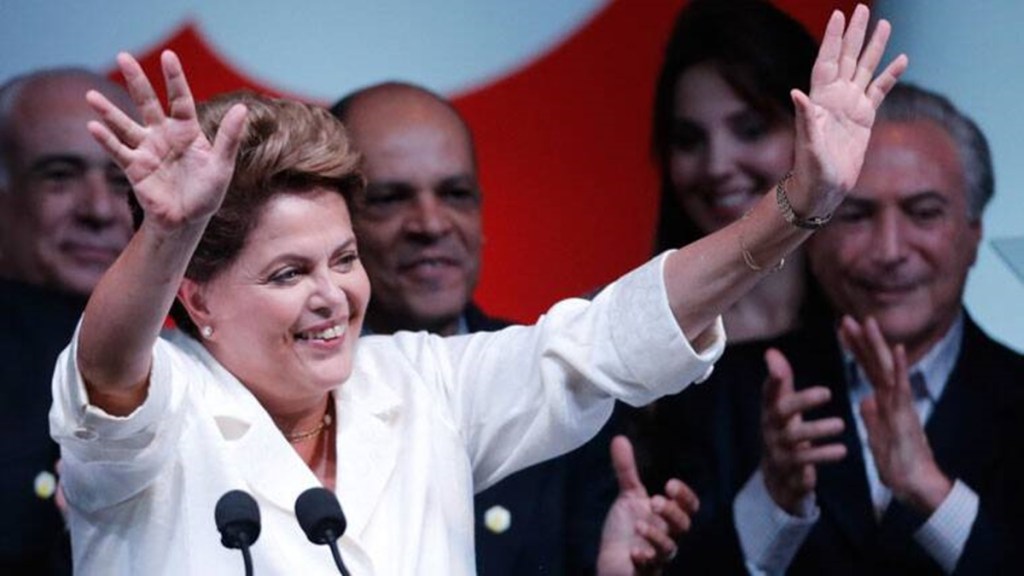Earlier this month former Brazilian President Dilma Rousseff was named as the head of New Development Bank (NDB) which is headquartered in Shanghai. This bank was created to support multilateral economic development in the BRICS nations – Brazil, Russia, India, China, and South Africa.
The NDB is different from the World Bank or the International Monetary Fund (IMF). One-fifth of the share of the NDB is owned by the BRICS governments. This means each member country has an equal say in the decision making.
The former president of Brazil Rousseff who had helped in founding the NDB will preside over the NDB until July 2025, when Brazil’s term as the chair will come to a close.
There are three key features that set the NDB apart from existing multilateral development banks. These include: South-South Cooperation, Sustainable Development and Equity in power-sharing.
Also read: BRICS: Time to expand the New Development Bank membership
Reports indicate that this move of appointing Rousseff as the new head will give the Chinese leadership a direct connection to the power in the South American nation.
Karin Costa Vazquez, Professor, Assistant Dean and Executive Director of the Center for African Latin American and Caribbean Studies at OP Jindal Global University shares her views with Huma Siddiqui.
Following are excerpts
What does the new appointment mean considering India-China relations are not normal? Is it going to impact relations of BRICS, not just economically, but geopolitically too?
Given that Dilma and President Lula are close allies; her appointment means that the NDB will be fully aligned with the Brazilian government’s vision and policies to meet the country’s infrastructure needs and sustainable development priorities. But more than assisting the development of individual member countries, Dilma’s appointment also signals the opportunity to strengthen the bank as a multilateral organization and the role that it can play in global economic governance.
This said, one must recall that the NDB and the AIIB (Asian Infrastructure Investment Bank) were created in 2015 to enable viable alternatives to the vast and unfulfilled infrastructure needs of emerging markets and developing countries as traditional multilateral and commercial banks shied away from infrastructure investment. Almost a decade later these infrastructure needs persist, and traditional multilateral institutions continue to struggle to live up to the expectations of the Global South.
The need for a bank like the NDB remains strong and, to my view, above the geopolitical issues that involve member states. It is true that many of these issues have a direct impact on the strategic direction and functioning of the bank (e.g., expansion, capitalization, credit rating, etc). I am confident that the motivations that bring these countries together remain stronger than any differences they may have. So is Dilma and NDB staff ability to overcome these differences and build bridges within and outside the NDB.
Brazil and China are close. Should India be concerned?
Non-alignment has re-emerged as a critical aspect of foreign policies in many Global South countries, particularly amid increasing global geopolitical tensions and divides. Latin American countries, including Brazil, have advocated for “active non-alignment”, that is, avoiding alignment with any particular power bloc or alliance while retaining the flexibility to pursue independent foreign policy decisions. India, for its turn, has focused on “strategic autonomy,” which involves maintaining strategic partnerships while making independent foreign policy decisions.
Against this background, saying that Brazil-China relations is a matter of concern to India is as fallacious as saying that India-US relations are a matter of concern to Brazil or any other country. Countries in the Global South have become more mature and capable of seeking the best partnerships to advance their national interests, address transnational challenges and provide global public goods. The point is how to maximize the potential benefits these different arrangements can have for individual countries and the world.
In the specific case of India and Brazil, there is huge potential for the two countries to strengthen cooperation under the International Solar Alliance, including via NDB-funded projects. Cooperation under the International Solar Alliance could attract investments in renewable energies and accelerate the adoption of solar energy in Brazil, in addition to encouraging the negotiation of new Global South-led alliances and partnerships.
Several countries are keen to join the NDB. How is it going to pan out?
Nineteen countries expressed their interest in joining the BRICS as the bloc prepares to hold an annual summit in South Africa. The emerging-markets bloc of Brazil, Russia, India, China, and South Africa will meet in Cape Town on June 2-3 to discuss BRICS expansion and how this will happen. The proposed expansion triggered concern among BRICS members that their influence will be diluted, especially if Beijing’s close allies are admitted. These countries are also aware of the benefits BRICS expansion could have to the making of a more multilateral world order. A traditional US ally, Saudi Arabia’s intention to join the BRICS, for instance, signals that the world is becoming more multipolar. And that there may be no way back.
India is holding the G20 presidency: next year Brazil will be the host and then South Africa. What do you foresee?
The Indian, South African, and Brazilian presidencies of the G20 and the South African and Brazilian presidencies of the BRICS over the next three years offer a platform for political coordination among three major countries of the Global South. This said, this is a unique opportunity for these three countries to offer a positive, constructive agenda from the Global South for international development and global governance when the world needs it the most.

